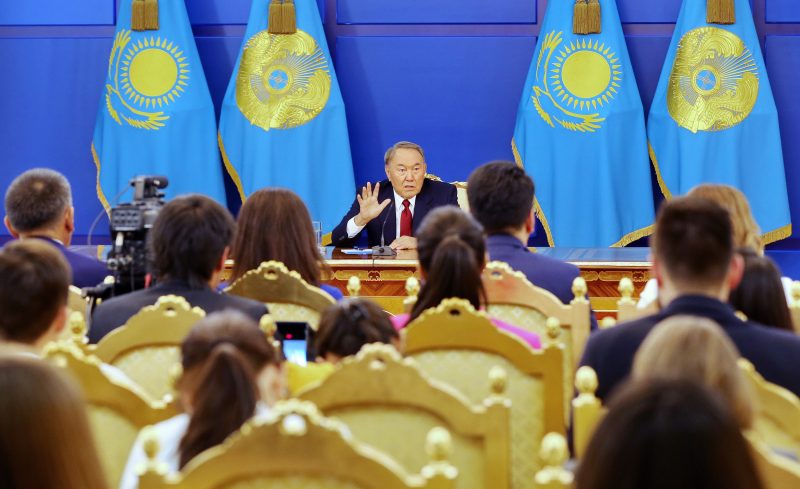Kazakh president sacks government for economic failures
Kazakh President Nursultan Nazarbayev’s decision to sack the government has led some to suspect he might call an early election this year (STANISLAV FILIPPOV)
Astana (Kazakhstan) (AFP) – Kazakhstan’s long-ruling President Nursultan Nazarbayev dismissed the government on Thursday, citing a lack of economic development despite the Central Asian nation’s vast energy resources.
“In many areas of the economy, despite the adoption of many laws and government decisions, positive changes have not been achieved,” Nazarbayev said in a statement on the presidential website.
While some ministers and deputy ministers are likely to be reinstated, the decision marks the end of Bakytzhan Sagintayev’s premiership, which began in 2016.
The 55-year-old was viewed by some analysts as part of a leadership transition in the country, which 78-year-old Nazarbayev has ruled over for close to three decades.
An order on the presidential website said Sagintayev would be replaced temporarily by former deputy prime minister Askar Mamin, 53, ahead of the formation of a new cabinet.
Nazarbayev’s decision comes amid rising dissatisfaction in Kazakhstan, a former Soviet republic whose commodity-dependent economy has struggled to recover from a 2014 plunge in oil prices and Western sanctions against Russia, a key trading partner.
“GDP growth is mainly achieved due to raw materials,” Nazarbayev said in the statement.
“But the government together with the National Bank did not manage to fully create real incentives and tools for high-quality economic growth.”
Nazarbayev also criticised the government for failing to fulfil programmes aimed at boosting living standards.
“The real incomes of the population have not increased. The share of food expenses in the family budget is growing,” he noted.
– Pre-election move? –
The cabinet sacking follow complaints and protests launched by low-income mothers who have demanded increased welfare payments, and ahead of a conference of the ruling party at the end of the month.
Nazarbayev said he would “propose a number of measures to strengthen social support and improve quality of life” at the conference of his Nur Otan party on February 27.
He added that “considerable funds will be allocated from the budget and the National Fund” to pay for the measures.
Dosym Satpayev, a well-known analyst of Kazakh politics, wrote on Facebook that Nazarbayev’s statement was “similar to a pre-election platform”, reflecting speculation the septuagenarian may call an early election this year.
Nazarbayev has never faced serious competition and none of Kazakhstan’s elections have been endorsed by Western vote monitors.
His term ends in 2020 and he dismissed the idea that an imminent vote in the nation of 18 million people was possible as recently as this month.
Satpayev wrote that Nazarbayev’s decision to disband the Sagintayev government “fits a classical scheme”.
“The king is good. The nobles are bad. Such is the political mechanism when it is necessary to redirect a protest mood in the direction of negligent officials,” Satpayev wrote.
Kazakhstan’s last change of prime minister came after nationwide protests over a proposal to amend the country’s land code, which saw hundreds arrested in different parts of the vast country.
Many speculated the real reason for the protests was depressed real incomes.
In 2015, the government decided to float the tenge currency, and under pressure from lower oil prices it has since shed roughly half its value relative to the dollar.
Disclaimer: This story is published from a syndicated feed. Siliconeer does not assume any liability for the above story. Validity of the above story is for 7 Days from original date of publishing. Content copyright AFP.


